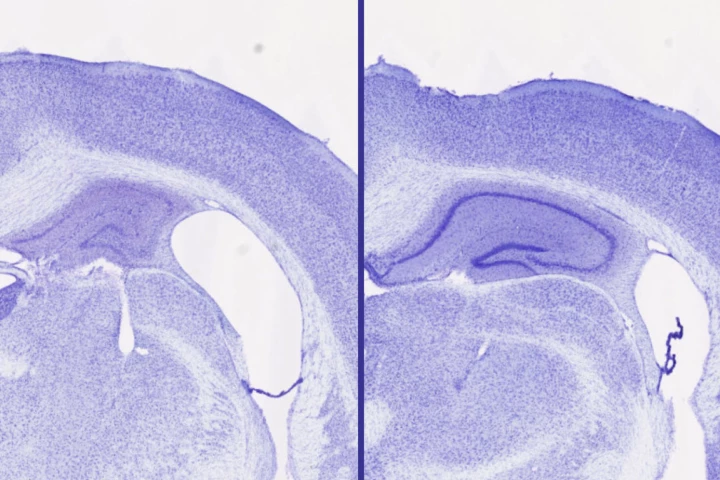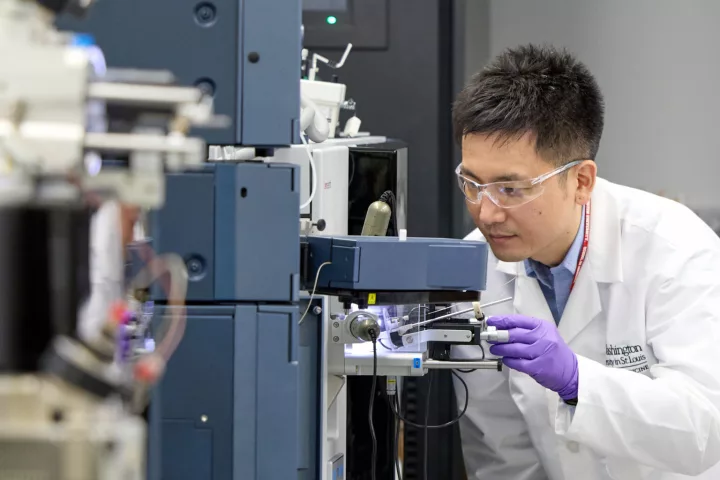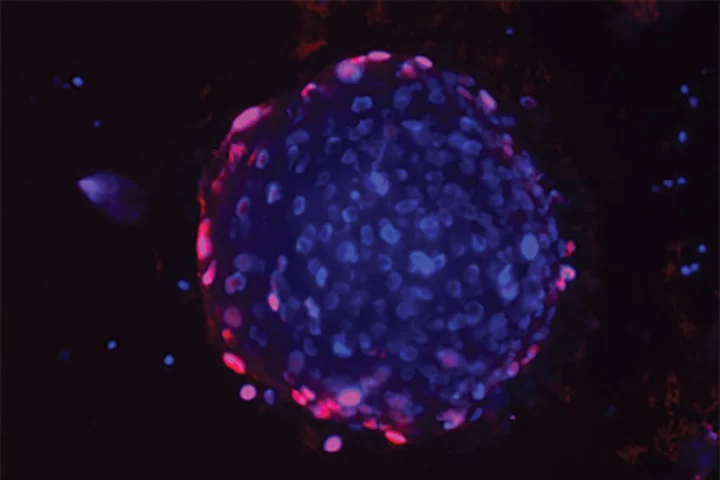Washington University in St. Louis
-
A readily available sleep aid has been shown to have a surprising side effect on brain health, seemingly protecting the organ from the buildup of the tau protein – a key biomarker in the development of neurodegenerative diseases including Alzheimer's.
-
A new blood test is not only able to identify Alzheimer's disease, but it can also indicate how far the disease has progressed with a 92% rate of accuracy. The finding offers hope for new personalized treatment and care options.
-
A new study has found that we’re doing something right when it comes to air pollution. An analysis of global data has found that exposure to fine particulate matter, a leading environmental health risk, has fallen.
-
A novel device can detect the COVID-19 virus in one minute using just a couple of breaths of exhaled air. The device could revolutionize the testing process, especially at large-scale social gatherings like concerts or sporting events.
-
A fascinating study has shed light on how the trillions of microbes in our gut could be affecting our brain health. The research found mice engineered to develop Alzheimer's developed fewer signs of neurodegeneration when raised with no gut bacteria.
-
Immunotherapy is a promising cancer treatment, but getting it to work against solid tumors is difficult. A new study has not only identified a drug that’s effective against solid tumors, but may have uncovered a reason that immunotherapy often fails.
-
Researchers have found that adding a booster protein can significantly improve the outcome of cancer immunotherapy. Tests in mice showed the protein produced 10,000 times more cancer-targeting immune cells, with all mice surviving the experiment.
-
Antibiotics were one of the most important inventions of the 20th century, but bacteria are developing resistance to them. Now researchers have shown that ultrashort pulses of laser light can kill bacteria and viruses, without harming human cells.
-
Spider silk is one of nature’s most impressive materials, exhibiting impressive strength and toughness. Now, researchers at Washington University in St. Louis claim to have created an artificial version that can outperform some natural spider silks.
-
Researchers have found a way to maintain insulin levels in diabetic mice by growing and implanting new beta cells that produce the hormone. These cells are housed inside a tiny device that protects them from the immune system, like a shark cage.
-
A new design out of Washington University in St Louis demonstrates a promising path forward for sodium batteries, with the team producing a device that is smaller and less expensive than lithium batteries, without compromising on performance.
-
Hooking our brains up to machines could mean new forms of treatment for brain diseases such as Alzheimer’s. A new device shows promises in this regard, with an ability to be loaded up with different cartridges depending on the treatment needed and triggered remotely with a smartphone.
Load More











